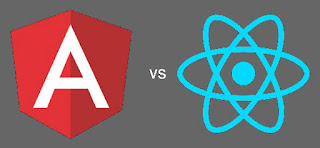John Piper talks about the idea of living a 'wartime lifestyle'. Rather than maximizing our own comforts and luxuries now, the way we live should be "based on clear biblical passages of love and sacrifice and suffering in ministry and the brevity of life and the lostness of the world and the suffering of those around us." We should "move toward need rather than toward comfort and security, toward generosity and simplicity." All of this is based on the biblical commands to love others and share the Gospel to the ends of the earth.
It was probably over ten years ago that I thought about the idea of setting a certain income limit and giving away anything I made over that limit. There is so much need in the world and so many lost people, I feel morally obligated to limit my comforts to help others.
A few years ago I came up with the idea of giving away all of my income over 200% of the federal poverty level. This is something my wife and I have committed to doing.
The good thing about tying my income limit to the federal poverty line is that it automatically adjusts for inflation and family size. My income has yet to reach 200% of the federal poverty line but we may get to that point this year. In the meantime, I have been trying to give away 10%. Basically, my family is committing to staying at our current standard of living.
For a long time I thought that I should keep this plan a secret from others because of Jesus' command in Matthew 6:3: "But when you give to the needy, do not let your left hand know what your right hand is doing."
While my desire to give is rooted in my commitment to Jesus, I first started wondering about the benefit of sharing my giving plan with others when I read an argument from a secular perspective. A blog post from givingwhatwecan.org makes the case that talking to others about what you give and the benefits of giving can motivate others to give. This will lead to more people being helped. That blog post starts off, "A five-minute conversation has the potential to prevent 40 lives being lost."
What really made me think I should be open about my giving plan was when I read "Is It Wrong to Let Others Know How Much We Give Financially to the Lord’s Work?" by Randy Alcorn.
Randy Alcorn is a best-selling Christian author who earns minimum wage and gives away 100 percent of his book royalties. He has given away more than $6 million to date. He is someone I have tremendous respect for.
Randy directly addresses the verses above from Matthew. He makes a very good case that the verse is mainly about motivation and that in other parts of the Bible it is a positive thing to share about giving. I will quote his conclusion in full and emphasize what I feel is the key point.
This commitment to giving has opened up a lot of freedom in my thought life in terms of my career path. I am about to hit my income limit. At this point, earning more money will not benefit me or my family. It will only benefit others.This is why in the church we need to take the risk of openly telling stories of what God has done for us in the arena of giving. In fact, what may force me to swallow my pride more than anything is talking about giving when it runs the risk of making it look like I’m patting myself on the back. (Our motive for not talking about our giving is not always humility. Sometimes it is fear, doubt and, yes, even pride.) To vulnerably express to others where I am in my giving pilgrimage can be an act of humility. Though we must always check our spiritual pulse, it certainly does not have to be an act of pride.So, I shouldn’t be bragging about my Bible study or prayer or evangelism or parenting or giving, but I shouldn’t be covering it up either. It’s easier for people in our churches to follow footprints than commands. If we aren’t willing to openly and humbly discuss giving, how can we expect to raise up givers? The church has plenty of examples of consumers—we need to see examples of givers. (That’s why hearing all the testimonies is appropriate.) Hebrews 10:24 tells us to “spur one another on toward love and good deeds.” We can only be spurred on to by what we’re aware of, what we can see.
Without the idea of money clouding my judgement, it is much easier to just focus on serving others with my life. Any career decision will be based on what is going to have the biggest impact on advancing God's kingdom on Earth. I understand the focus discussed here should apply with or without an income limit. It is just a little easier for me with the limit.
I will still be motivated to increase my income so I can give more. But I have to determine if I can help more people by using my time to make money so I can give more or using my time to serve people directly.
The current plan is to give 1/3 to spreading the Gospel to unreached people groups (the primacy of this was inspired by reading "Let the Nations Be Glad!" by John Piper), 1/3 to local causes, and 1/3 to high-impact charities fighting global poverty.
Something that this plan has already motivated is my web development company that currently gives 60% of all income to charities.
It is my hope that sharing about my plan for giving will motivate others to give more. I hope that this increased giving will lead to more people hearing the good news of Jesus and getting out of poverty.

